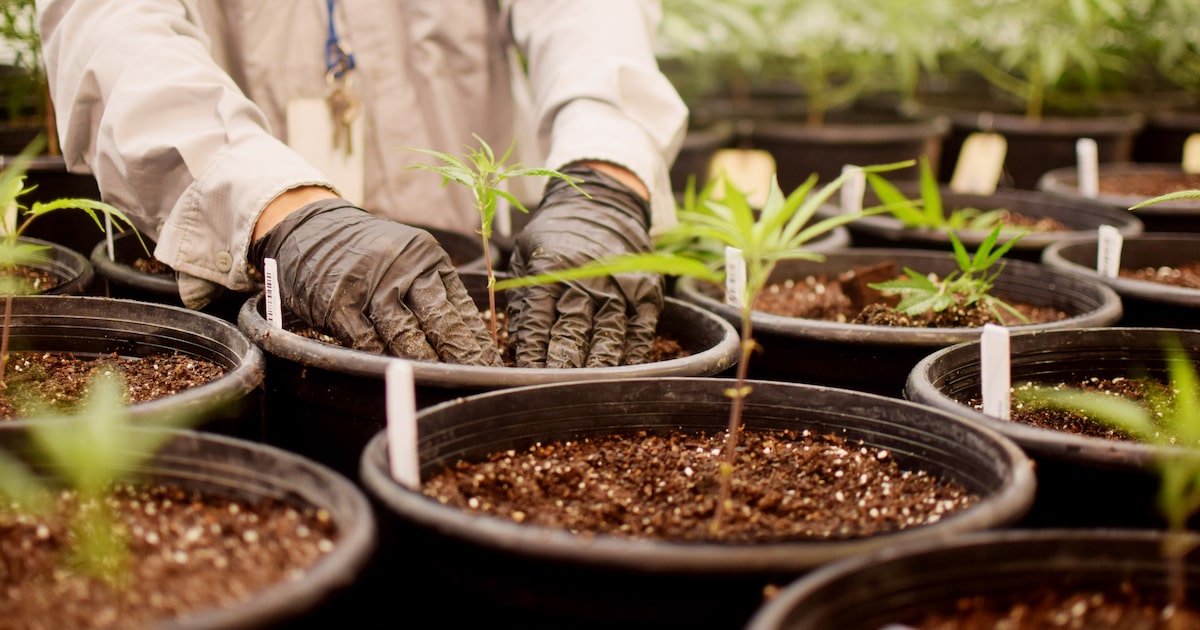AUSTIN __ Lawmakers struck a deal late Saturday on an expansion of the state’s medical marijuana program – one of the most closely watched proposals before Texas lawmakers as they prepare to ban retail hemp shops – after hours of wrangling that threatened to derail both bills.
If lawmakers aren’t able to agree before Monday on how to grow the medical marijuana program to include millions more Texans than the 20,000 it currently serves, it will knock out an important flip side to a recently passed ban on hemp-based retail consumables – the vapes, gummies and drinks being sold in gas stations and vape shops across the state.
The ban has earned strong backlash from veterans and others who say the hemp stores have helped them when the medical marijuana program has fallen short.
House Bill 46, by Rep. Ken King, R-Canadian, exponentially widens the state’s historically anemic Texas Compassionate Use Program, the 10-year-old medical marijuana program.
The plan settled on by House and Senate negotiators seeks to raise the number of licensees from 3 to 15 by next year and add several new conditions that would qualify patients for the program, including sufferers of traumatic brain injury and chronic pain.
Lawmakers have until midnight on Sunday to approve the deal and send it to Gov. Greg Abbott’s desk.
Passing the compromise bill, filed late Saturday and expected to be approved by the Texas House and Senate on Sunday, would save not just the long-awaited and unprecedented expansion to TCUP. It would also preserve an important bargaining chip for supporters of a ban on the state’s $8 billion retail consumable hemp industry.
The fate of the ban lies in the hands of Gov. Greg Abbott, who is under mounting pressure to veto the legislation, which criminalizes possession, sale and manufacturing of consumable THC products, before the June 22 deadline for vetoes.
The ban, known as Senate Bill 3, is considered one of the strongest in the nation, and it is similar to legislation vetoed by Florida Gov. Ron DeSantis, a Republican, a year ago.
The chronic pain fight
The Republican-led plan to grow TCUP includes adding patients who suffer from chronic pain to the list of those qualified for the program, which administers medicines containing tetrahydrocannabinol, or THC, the psychoactive agent in marijuana. Marijuana cannot be sold recreationally in Texas.
Lawmakers wrangled for days over whether to require those pain patients to try a course of opioid treatment before they can qualify for THC – a stipulation that threatened to derail the carefully negotiated legislation.
The final version of the expansion bill does not require an opioid as a prerequisite for getting a qualifying chronic pain diagnosis, a stipulation that was tied to the official Texas Medical Board definition of “chronic pain,” which uses the need for opioid treatment as an indicator in the diagnosis.
Instead, the new compromise bill would allow doctors to prescribe THC in place of opioids, not after them, if a patient’s severe pain is prolonged for more than 90 days and cannabis “is a viable method of treatment.”
In addition to raising the number of qualifying conditions, the legislation would allow 90-day prescriptions with up to four refills – an expansion of current restrictive rules – before a patient has to return for a new prescription.
The bill also would allow higher-concentration doses, so less product would need to be consumed to get the benefits, and allow the products to be inhaled through vaporizers or administered through edibles, oils and suppositories.
In addition to raising the number of licensees, HB 46 would also create satellite storage facilities that could be set up around Texas, allowing the dispensaries for the first time to store product off-site. That means they save money on fuel and travel time, and that patients can pick up their products easily or have them delivered to their homes cheaply.
Lt. Gov. Dan Patrick, a Houston Republican who has championed the program as a remedy to the much-ballyhooed THC ban, said the bill may be the biggest relaunch of a medical marijuana program in the country.
Known by its acronym TCUP, the program is among the most anemic in the U.S., with only 20,000 people using it after 10 years in existence. Other more successful state programs have allowed for more medical conditions to qualify, such as depression and anxiety, to qualify patients or more streamlined delivery systems.
Patrick, who made the hemp-shop ban a priority for the session, has waged a public campaign to rally support for the ban even in the days since it passed, as opponents have stepped up their pressure on Abbott to veto it.
Last week, Patrick staged a dramatic press conference in which he displayed a dozen THC-laced snacks he’d had purchased from retail hemp stores and blamed the media for the backlash against the ban – at one point tossing a bag of THC snacks at reporters and daring them to eat it.
Asked at the time whether he was worried about a veto, Patrick said he wouldn’t speak for Abbott. He said they’d had several conversations about the problem of the 8,500 retailers who had proliferated through a legal loophole in the last five years.
“I know his heart,” Patrick said. He declined to elaborate.


